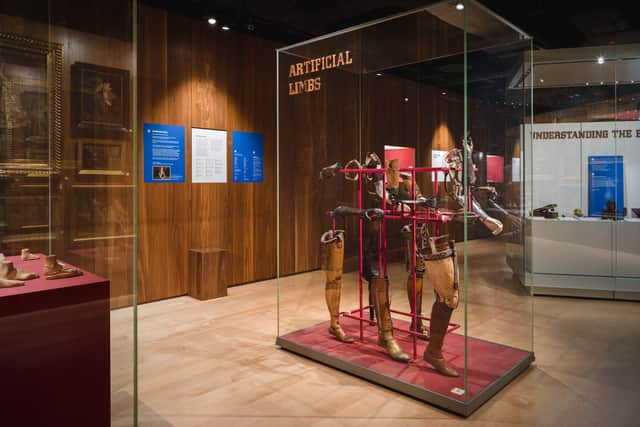Wellcome Collection closes 'racist, sexist and ableist' Medicine Man display after 15 years
and live on Freeview channel 276
A museum in London is closing one of its main exhibitions over concerns that the display contains “racist, sexist and ableist theories and language”.
The Wellcome Collection on Euston Road says the Medicine Man exhibition has ended after a 15-year run.
Advertisement
Hide AdAdvertisement
Hide AdThe museum curated the exhibition from some of the million-plus objects gathered by founder Henry Wellcome, before his death in 1936, to give an insight into global health and medicine.
The museum said in a statement on Twitter: "We can’t change our past. But we can work towards a future where we give voice to the narratives and lived experiences of those who have been silenced, erased and ignored.
"We tried to do this with some of the pieces in Medicine Man using artist interventions. But the display still perpetuates a version of medical history that is based on racist, sexist and ableist theories and language."


It added that exhibiting the collection of paintings, books and anatomical models told a colonial story of a man with "enormous wealth, power and privilege".
Advertisement
Hide AdAdvertisement
Hide AdThe statement continued: "The result was a collection that told a global story of health and medicine in which disabled people, Black people, Indigenous peoples and people of colour were exoticised, marginalised and exploited - or even missed out altogether."
The Wellcome Collection has pledged to establish a new project in the coming years which will "amplify the voices of those who have been previously erased or marginalised from museums".
And it will bring "their stories of health and humanity to the heart of our galleries".
In 2019, Melanie Keen was appointed director of the Wellcome Collection and reportedly pledged to be courageous in dealing with the most contentious items on display there.
Advertisement
Hide AdAdvertisement
Hide AdShe highlighted a 1916 painting by Harold Copping of a black African kneeling in front of a white missionary.
The piece, called A Medical Missionary Attending to a Sick African, is now in storage.
Ms Keen said: "It feels like an impossible place to be worrying about this material we hold without interrogating what it is, what narratives there are to be understood in a more profound way, and how the material came to be in our collection."
Comment Guidelines
National World encourages reader discussion on our stories. User feedback, insights and back-and-forth exchanges add a rich layer of context to reporting. Please review our Community Guidelines before commenting.
